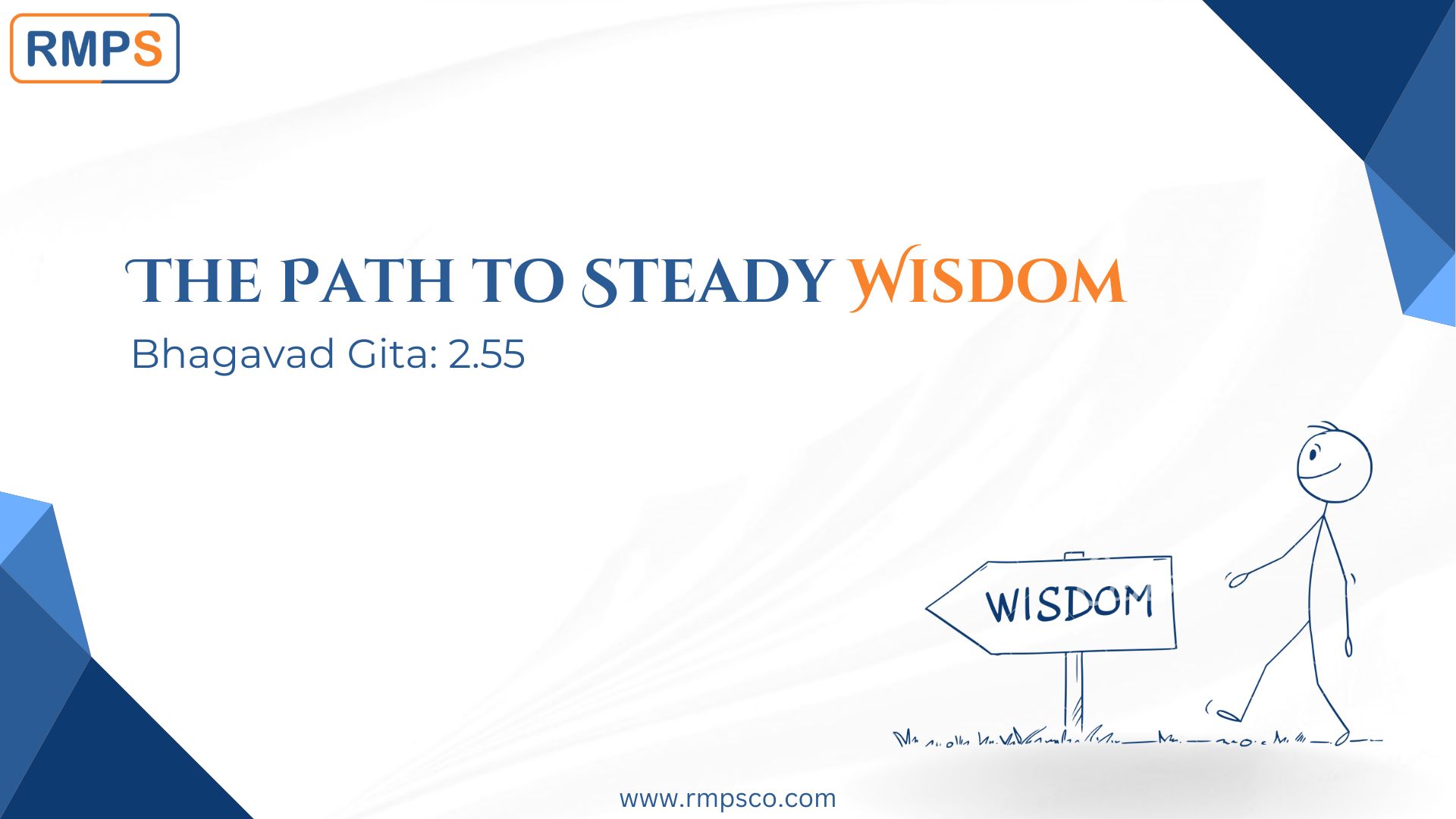
Bhagavad Gita: Chapter 2.5
Sanskrit Verse: श्रीभगवानुवाच: प्रजहाति यदा कामान्सर्वान्पार्थ मनोगतान्। आत्मन्येवात्मना तुष्ट: स्थितप्रज्ञस्तदोच्यते।।
Translation: The Blessed Lord said: “O Partha, when a person gives up all desires arising from the mind and finds satisfaction in the self alone, such a person is said to be of steady wisdom.”
Context and Explanation
In this verse, Krishna introduces the qualities of a “sthita-prajna,” or a person of steady wisdom. Such an individual:
- Transcends Desires: They let go of desires originating in the mind. These desires are often fleeting, external, and ego-driven.
- Self-Satisfaction: They find contentment within themselves, independent of external circumstances. This inner joy stems from realizing their true nature, beyond material possessions and achievements.
Krishna highlights that achieving this state of equilibrium and self-contentment leads to a higher form of wisdom and inner peace.
Practical Lessons for Entrepreneurs
Entrepreneurs often face a relentless pursuit of external success, be it revenue growth, recognition, or expansion. This verse provides guidance on achieving fulfillment while navigating the entrepreneurial journey.
- Let Go of Ego-Driven Desires: Constantly chasing external validation can lead to stress and burnout. Focus on meaningful goals that align with your values and bring intrinsic joy.
- Find Inner Contentment: Entrepreneurship often involves uncertainty. Cultivating self-satisfaction ensures resilience, regardless of external outcomes.
- Detach from Results: Krishna’s wisdom encourages focusing on the journey rather than obsessing over the results. This mindset allows for creativity and innovation.
- Prioritize Mental Well-being: A person with steady wisdom prioritizes inner peace over external gains. Entrepreneurs can adopt mindfulness practices to maintain balance.
Real-Life Example
Ratan Tata, a visionary Indian industrialist, exemplifies the traits of a “sthita-prajna.” Despite leading one of the largest conglomerates in India, his humility and focus on impactful projects over personal wealth demonstrate inner satisfaction. His investments in philanthropy reflect his higher purpose, rather than a mere pursuit of profits.
Practical Steps to Achieve Steady Wisdom
- Daily Reflection: Set aside time each day to review your actions and decisions. Are they driven by purpose or fleeting desires?
- Mindful Decision-Making: Pause before major decisions to ensure they align with your core values.
- Simplify Goals: Focus on fewer, impactful objectives rather than chasing everything at once.
- Invest in Self-Growth: Read books, seek mentorship, or attend workshops that foster emotional and spiritual growth.
Conclusion
Verse 2.55 of the Bhagavad Gita teaches entrepreneurs the value of inner fulfillment over external pursuits. By transcending desires and finding satisfaction within, you can achieve not just business success but also lasting peace and wisdom.
Embrace the journey, prioritize purpose, and cultivate a steady mind to navigate challenges with grace and clarity.
LinkedIn Link : RMPS Profile
This article is only a knowledge-sharing initiative and is based on the Relevant Provisions as applicable and as per the information existing at the time of the preparation. In no event, RMPS & Co. or the Author or any other persons be liable for any direct and indirect result from this Article or any inadvertent omission of the provisions, update, etc if any.
Published on: February 15, 2025
